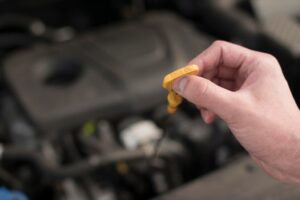Becoming an automotive mechanic can be a rewarding career path that combines technical expertise with problem-solving skills. Whether you’re fascinated by engines or simply love working with your hands, this guide will walk you through the steps to becoming a professional mechanic. The automotive industry continues to evolve rapidly, making this an exciting time to enter the field.
Understanding the Role
Modern mechanics do far more than just turn wrenches. Today’s vehicles are sophisticated machines with complex computer systems and electronic components. As a mechanic, you’ll need to:
- Diagnose and repair mechanical issues
- Work with diagnostic software and equipment
- Perform routine maintenance
- Communicate effectively with customers
- Stay updated on new vehicle technologies
- Handle both electronic and mechanical systems
- Maintain a safe and organized workspace
The Modern Mechanic’s Environment
Today’s auto repair shops bear little resemblance to the greasy garages of the past. Modern facilities are clean, well-lit, and equipped with state-of-the-art technology. Mechanics work with advanced diagnostic tools, computer systems, and precision equipment. The profession has evolved to require a blend of traditional mechanical skills and technological expertise.
The Impact of Electric Vehicles
The rise of electric vehicles (EVs) has created new opportunities and challenges for mechanics. Working on EVs requires specialized knowledge of:
- High-voltage electrical systems
- Battery maintenance and replacement
- Regenerative braking systems
- Electric motor diagnostics
- Thermal management systems
Mechanics who develop expertise in EV maintenance position themselves at the forefront of automotive technology, potentially commanding higher salaries and better career opportunities.
Educational Requirements
High School Preparation
Your journey can begin in high school by:
- Taking automotive technology classes if available
- Focusing on math and physics
- Studying computer science basics
- Taking shop classes
- Considering part-time work at auto repair shops
The Importance of STEM Education
While traditional mechanical skills remain crucial, a strong foundation in Science, Technology, Engineering, and Mathematics (STEM) has become increasingly important. Modern vehicles rely heavily on computer systems and complex electronics, making knowledge of these subjects invaluable. Understanding basic programming concepts and diagnostic software is now as important as knowing how to use a wrench.
Post-Secondary Education
Most successful mechanics follow one of these educational paths:
- Vocational/Technical School
- Programs typically last 6-12 months
- Focused hands-on training
- Industry-specific certifications
- Often includes internship opportunities
- Community College
- Associate degree programs (2 years)
- More comprehensive education
- Business management courses
- Advanced theoretical knowledge
Online Learning Opportunities
The digital age has brought new opportunities for aspiring mechanics to learn and develop their skills:
- Virtual reality training programs
- Interactive online courses
- Digital simulation software
- Remote diagnostic training
- Video-based learning platforms
These resources allow students to practice and learn at their own pace while gaining exposure to a wide range of vehicle types and repair scenarios.
Certification Requirements
ASE Certification
The National Institute for Automotive Service Excellence (ASE) offers the most recognized certifications in the field:
- A1-A9 Series (Various automotive systems)
- L1 Advanced Engine Performance
- X1 Undercar Specialist
- G1 General Maintenance
To become ASE certified, you need:
- Two years of work experience
- Passing scores on certification exams
- Ongoing education for recertification
Manufacturer-Specific Training
Many vehicle manufacturers offer their own certification programs. These programs provide:
- Brand-specific technical training
- Access to proprietary diagnostic tools
- Regular updates on new models
- Specialized repair procedures
- Warranty repair authorization
Obtaining manufacturer certifications can lead to higher-paying positions at dealerships and specialized repair facilities.
The Business Side of Auto Repair
Customer Service Excellence
Success as a mechanic isn’t just about technical skills. Outstanding customer service is crucial for:
- Building trust with clients
- Generating repeat business
- Earning positive reviews
- Creating referral opportunities
- Increasing shop revenue
Learning to explain complex repairs in simple terms and maintaining transparent communication with customers are essential skills for any mechanic.
Digital Marketing and Social Media
Modern auto repair businesses increasingly rely on digital presence:
- Social media marketing
- Online appointment scheduling
- Digital vehicle inspection reports
- Customer relationship management systems
- Online reviews and reputation management
Understanding these aspects of the business can help mechanics who aspire to management roles or business ownership.
Health and Safety Considerations
Workplace Safety
The automotive repair industry presents unique health and safety challenges:
- Exposure to chemicals and fluids
- Heavy lifting requirements
- Working with high-voltage systems
- Operation of powerful equipment
- Extended periods in difficult positions
Successful mechanics must:
- Follow strict safety protocols
- Use appropriate protective equipment
- Maintain proper ergonomic practices
- Stay current with safety regulations
- Practice proper tool handling
Work-Life Balance
The demanding nature of automotive repair requires attention to:
- Physical fitness and strength training
- Stress management techniques
- Time management skills
- Regular breaks and rest periods
- Proper nutrition and hydration
Industry Trends and Future Outlook
Emerging Technologies
The automotive industry is experiencing rapid technological advancement:
- Autonomous driving systems
- Connected car technologies
- Advanced driver assistance systems (ADAS)
- Alternative fuel vehicles
- Over-the-air updates
Mechanics must continuously adapt their skills to work with these emerging technologies.
Environmental Considerations
The push for sustainability affects the automotive repair industry through:
- Increased focus on emissions systems
- Alternative fuel vehicle maintenance
- Recycling and waste management
- Green shop practices
- Environmental regulations compliance
Building a Personal Brand
Professional Development
Creating a strong professional identity involves:
- Developing a specialty or niche
- Building an online presence
- Networking with industry professionals
- Contributing to automotive forums
- Mentoring apprentice mechanics
Documentation and Portfolio Building
Keep records of:
- Completed certifications
- Complex repairs
- Specialized training
- Customer testimonials
- Project photographs
This documentation can be valuable for career advancement and business development.
Additional Resources
Professional Organizations
- Automotive Service Association (ASA)
- Society of Automotive Engineers (SAE)
- Mobile Air Conditioning Society (MACS)
- International Automotive Technicians Network (iATN)
Industry Publications
- Motor Magazine
- AutoInc
- Tomorrow’s Technician
- Motor Age
These resources provide valuable insights into industry trends, technical information, and career opportunities.
Conclusion
Becoming a mechanic requires dedication, continuous learning, and hands-on experience. While the path may seem challenging, the career offers stable employment, good earning potential, and the satisfaction of solving complex problems. With the right combination of education, certification, and experience, you can build a successful and rewarding career in automotive repair.
Remember that the automotive industry is constantly evolving, particularly with the rise of electric and hybrid vehicles. Staying adaptable and committed to learning will ensure long-term success in this dynamic field. The future of automotive repair is bright for those willing to embrace new technologies while maintaining the fundamental skills that have always been at the heart of the profession.











